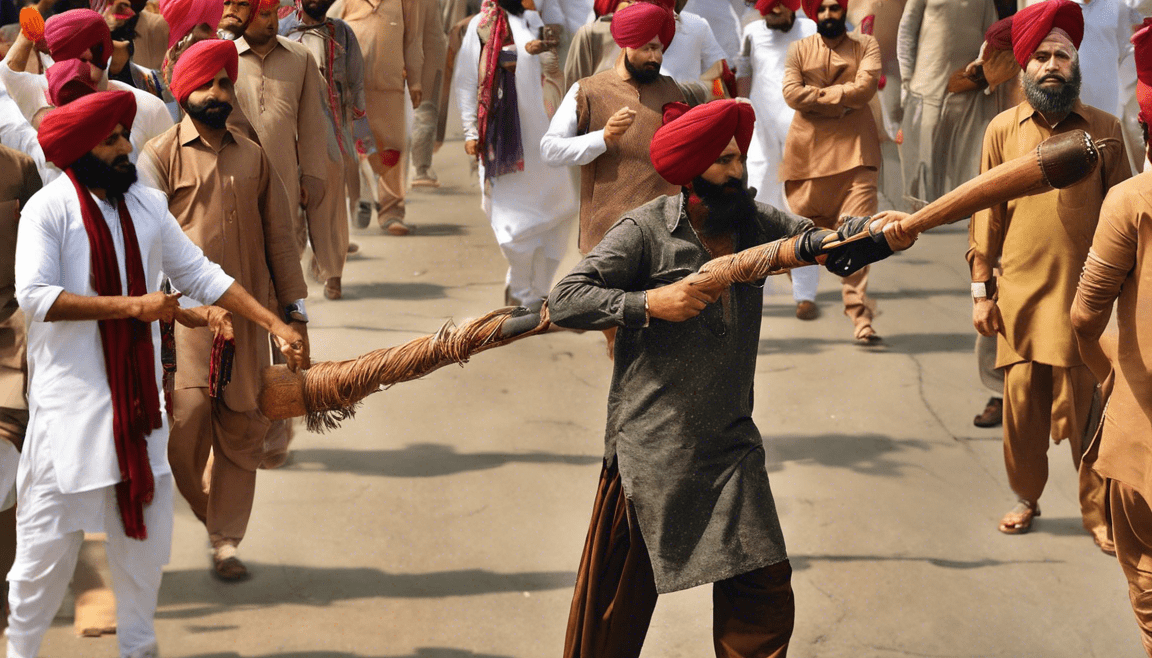Steeped in history, culture, and tradition, Punjab is a vibrant state in northern India that boasts a rich tapestry of festivals and holidays throughout the year. From the exuberant celebrations of Vaisakhi to the serene observances of Gurpurab, there is no shortage of holiday highlights to explore in Punjab. In this article, we will delve into some of the most significant festivals and cultural events that take place in Punjab, shedding light on their origins, customs, and significance in the local community.
Vaisakhi: The Harvest Festival
Vaisakhi, also known as Baisakhi, is one of the most important festivals in Punjab, marking the Sikh new year and the harvest festival. Celebrated with great fervor and enthusiasm, Vaisakhi typically falls on April 13 or 14 and holds special significance for the Sikh community. The day begins with prayers at gurdwaras, followed by processions, music, dancing, and feasting. Farmers offer thanks for the bountiful harvest, while devotees partake in rituals and volunteer service.
Lohri: The Bonfire Festival
Lohri is a popular winter festival celebrated in Punjab, Haryana, and other northern states of India, usually on January 13. The festival marks the culmination of the winter season and is associated with the harvest of rabi crops. The highlight of Lohri is the bonfire, around which people gather, sing folk songs, dance, and throw puffed rice, popcorn, and sweets into the fire as offerings. The festival is a time of joy, camaraderie, and goodwill.
Gurpurab: Celebrating the Guru
Gurpurab is the celebration of the birth anniversary of one of the Sikh Gurus, with the most significant being the birthday of Guru Nanak Dev Ji, the founder of Sikhism. Observed with great reverence and devotion, Gurpurab involves special prayers, hymn singing, processions, and community meals called langar. The Golden Temple in Amritsar and other gurdwaras are decorated and illuminated for the occasion, attracting throngs of pilgrims and devotees.
Diwali: Festival of Lights
Diwali, the festival of lights, is a major Hindu festival celebrated with great pomp and splendor across India, including Punjab. Observed in October or November, Diwali signifies the victory of light over darkness and good over evil. Homes and streets are decorated with oil lamps and colorful rangoli patterns, fireworks light up the night sky, and families exchange gifts and sweets. The festival also holds religious significance for Sikhs and Jains, adding to the cultural richness of the celebrations.
Basant Panchami: Welcoming Spring
Basant Panchami marks the onset of spring and is dedicated to the worship of Saraswati, the goddess of knowledge, music, and arts. Celebrated in late January or early February, the festival is characterized by wearing yellow clothes, flying kites, and offering prayers to Saraswati. Schools and colleges organize special events, and devotees seek blessings for academic success and creative endeavors.
Hola Mohalla: Martial Arts Display
Hola Mohalla is a traditional Sikh festival celebrated a day after Holi, usually in March. The festival was started by Guru Gobind Singh, the tenth Sikh Guru, as a way for Sikhs to showcase their martial skills and engage in mock battles. Today, Hola Mohalla is a grand spectacle of martial arts demonstrations, music, poetry recitals, games, and processions. The festival attracts pilgrims and tourists from far and wide, adding to the festive atmosphere.
Frequently Asked Questions (FAQs)
-
What is the significance of Vaisakhi in Punjab?
Vaisakhi marks the Sikh new year and the harvest festival, symbolizing thanksgiving and renewal. It holds religious and cultural importance for the Sikh community. -
How is Lohri celebrated in Punjab?
Lohri is celebrated with bonfires, folk songs, traditional dances, and offerings of puffed rice and sweets. It is a time of celebration and community bonding. -
Why is Gurpurab celebrated in Punjab?
Gurpurab celebrates the birth anniversary of Sikh Gurus, emphasizing their teachings, legacy, and contributions to Sikhism. -
What traditions are associated with Diwali in Punjab?
Diwali in Punjab is characterized by lighting oil lamps, bursting fireworks, decorating homes, exchanging gifts, and preparing festive meals. -
How is Basant Panchami observed in Punjab?
Basant Panchami is celebrated by wearing yellow attire, flying kites, and offering prayers to Saraswati for knowledge and creativity.
Exploring the holiday highlights in Punjab offers a glimpse into the rich tapestry of culture, tradition, and festivities that adorn the state throughout the year. Whether joining the jubilant processions of Vaisakhi or witnessing the mesmerizing display of lights during Diwali, each festival in Punjab reflects the spirit and ethos of its people, fostering unity, joy, and spiritual upliftment.

